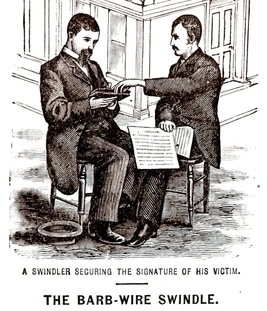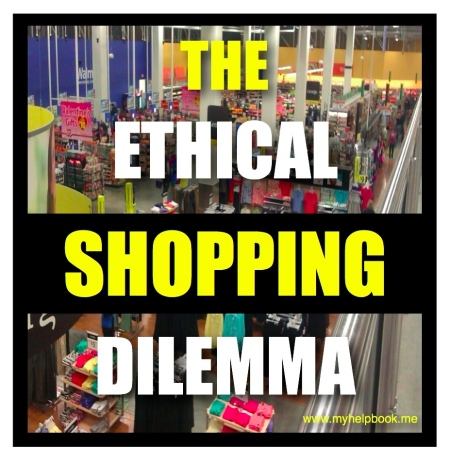|
It is not uncommon to hear stories of people who have had their lives turned upside down because they unknowingly hired an unscrupulous mover. If you are planning to move and want to find a reliable mover with a great reputation and one that fits your budget, The Canadian Association of Movers (CAM) can help. They recommend that you do your research, learn about your rights and responsibilities, get in-home estimates and book your move early. The best movers get contracted quickly so do your homework and avoid scams by following these tips to help protect your family and possessions:
Other resources to find a good moving company:
Government of Canada Consumer Checklist for Choosing a Moving Company Consumer Protection BC - Choosing a Moving Company Consumer Protection BC - Things to Know about Moving Insurance Thank you to the Canadian Association of Movers for providing information for this post.
0 Comments
Here are some of the main Canadian resources to help you avoid common scams and frauds (a small excerpt from pg 70 of My Help Book BC 2016).
 Don't feel stupid if you've been a victim of fraud. People who specialize in fraud are highly motivated and have lots of practice. And it probably means you are a good person and think the best of people. This is something to be proud of not ashamed. But you do need to protect yourself. Here are two signs of fraud to watch out for: 1) False Authority. Watch out for people who cloak themselves a with a sense of authority, expertise, fake professionalism, or who convey a high status by flashing signs of wealth. They count on the fact that most people do not have much experience or confidence to aggressively question people in positions of authority or status. This can even happen in the form of official looking invoices or renewal notices by mail or email. 2) False Urgency: If you are feeling a sense of panic, emergency or urgency and feel thus compelled to take some kind of action (or something bad will happen) -- take a big breath, step back, and stop yourself from taking any action until you have time to check on the details. If this urgency comes to you from someone claiming any kind of authority or familiarity -- in person, by telephone, email, or mail, realize this might be a warning sign something is wrong. Command yourself to: "WAIT DON'T ACT" even though you feel compelled to click on that "yes I need help with my computer" button, or think you are going to be frozen out of your email or bank account, or think you are going to miss a once in a life-time deal. Your mantra should be "I NEED TO CHECK DETAILS FIRST". If you are worried about something: Independently look up the number from a reliable source of whatever company or authority you are worried about. e.g. your bank, internet provider, Revenue Canada or utility company. Find the number from your utility bill for example. Then you call them to see if something is wrong. And if you need computer help, call someone reputable and local. If you have a small sense something is not right, don't worried about looking silly, call a trusted family member or friend and ask for advice. Everyone has been tricked at one point or another - scams are nothing new. A business advice book from 1894 states: "Beware of the Swindler, He is everywhere and in all kinds of business." The book goes on to warn about "the cheap jewelry swindle", "the barb-wire swindle", "the lightning rod swindle", and "Always read before signing" because "Carelessness in failing to acquaint themselves with the contents of a paper before signing it has worked incalculable harm to thousands of well intentioned people." (These scams of yore come from Safe Methods of Business by J.E. Hansford, J.L. Nichols & Co., Toronto On, 1894.) My Help Book BC Terms of Use & Disclaimer: 3PennyPublishing.com and MyHelpBook.me does not warrant or make any representations regarding accuracy or results of information, links, or any third party. Links and listings do not indicate endorsement of any organization, business, or service by the publisher, advertisers, or sponsors. Listings are only intended to guide you to professional help if any is available. If you are unable to find help, contact your elected representatives and/or seek professional legal advice. The trend of ethical consumption and ethical shopping is gaining momentum partly due to recent tragedies exposing inhuman working conditions for those who labour and sometimes give their lives to make cheap clothes even cheaper. See CBC timeline.
There are ethical shopping workshops, people who promote the idea of buying no gifts at Christmas, the voluntary simplicity movement, and anti-consumption ethics and campaigns (such as Buy Nothing Day) promoted by Adbusters. Is it helpful to buy local, buy fair trade, and shop ethically? Yes, but it is a drop in the bucket when we look at the big picture. Here's the dilemma: less consumption is very good for the environment, but when people don't buy stuff, other people don't have jobs. People fear losing jobs and incomes which is why the green movement has stalled for decades and almost all politicians promise jobs and growth. However, there is a way out of this dilemma and it is an idea increasing numbers of people around the world are talking about -- direct cash transfers to transition to an economy that takes into account environmental limits as well "technological unemployment" (loss of jobs from increased productivity). With the timely implementation of universal incomes, we really could have an ethical consumption economy – and we could finally end the harms caused by an economy based on endless consumption. In addition, local and micro-enterprises would flourish. Learn more about the movement for universal incomes*:
Learn more about technological unemployment:
*Note: when you search online for "basic income" or "guaranteed livable income", AVOID information from a multi-level marketing (MLM) scam - "equal money" that has co-opted terms "basic income" and "living income". Read more about this here and here. |
AuthorMy Opportunity & Help Book BC Categories
All
Archives
December 2020
|
Proudly powered by Weebly




 RSS Feed
RSS Feed